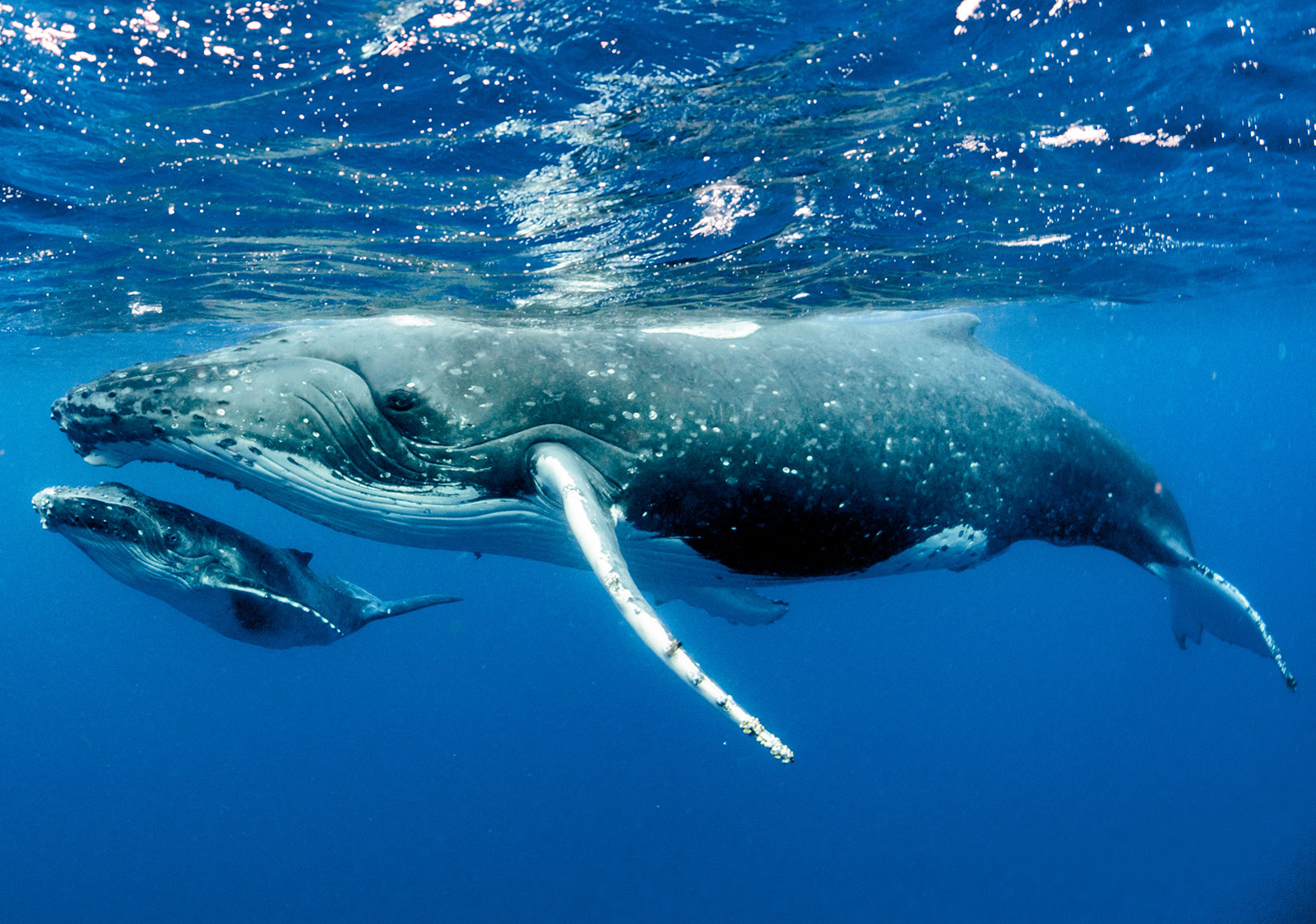
Whales are majestic creatures that have captured the fascination of humans for centuries. These marine mammals are known for their enormous size, captivating songs, and impressive underwater acrobatics. From the massive blue whale to the playful dolphins and the elusive narwhal, there is a wide variety of whale species that inhabit the world’s oceans.
In this article, we will uncover 19 fascinating facts about whales that will both educate and awe you. From their impressive physical characteristics to their unique behaviors and conservation efforts, these facts will give you a deeper understanding of these remarkable creatures. So, grab a cup of coffee, sit back, and let’s dive into the incredible world of whales!
Key Takeaways:
- Whales are the largest animals on Earth, with some reaching lengths of up to 100 feet and weighing as much as 200 tons. They play a crucial role in marine ecosystems and are highly intelligent mammals.
- Whales have unique communication and navigation methods, undertake long migrations, and have a complex social structure. Conservation efforts are crucial to protect these magnificent creatures from human activities.
Whales are the largest animals on Earth.
These magnificent creatures hold the record for being the largest animals that have ever lived, with some species reaching lengths of up to 100 feet and weighing as much as 200 tons!
There are two main types of whales: baleen whales and toothed whales.
Baleen whales have baleen plates instead of teeth, which they use to filter small fish and plankton out of the water. Toothed whales, on the other hand, have teeth and primarily feed on fish and squid.
The blue whale is the largest animal ever known to have existed.
These magnificent creatures can reach lengths of up to 100 feet and weigh over 200 tons. Their hearts alone can weigh as much as an automobile!
Whales are highly intelligent mammals.
They possess complex social structures, communicate with each other using intricate songs, and exhibit behaviors that indicate a high level of intelligence, such as problem-solving and tool usage.
Whales are excellent swimmers.
With their streamlined bodies and powerful tails, whales are capable of swimming at impressive speeds. Some species can reach speeds of up to 20 miles per hour!
Whales are found in every ocean around the world.
From the freezing waters of the Arctic to the tropical seas of the Caribbean, whales can be found in all major oceans, as well as some smaller seas and even rivers!
Whales undertake some of the longest migrations of any mammal.
Species like the gray whale and humpback whale travel thousands of miles each year, from their feeding grounds to their breeding grounds and back again.
Whales have a unique way of communicating and navigating.
They use a variety of vocalizations, such as songs and clicks, to communicate with each other and navigate their environment. Some of their songs can be heard over long distances.
Some whales have a lifespan of over 100 years.
Species like the bowhead whale have been known to live for more than a century, making them some of the longest-lived mammals on the planet.
Whales play a crucial role in marine ecosystems.
As top predators, they help maintain the balance of marine food chains and contribute to the health and diversity of the oceanic ecosystem.
Whales are known for their impressive acrobatic displays.
Species like the humpback whale often breach, slap their tails, and perform other aerial maneuvers, showcasing their agility and strength.
Whales have a unique method of feeding.
Baleen whales use baleen plates to filter small fish and plankton out of the water. Some species can consume several tons of food in a single day!
Mother whales are highly devoted to their young.
They provide nourishment and protection to their calves, swimming alongside them and teaching them essential survival skills.
Whales have a sensitive hearing.
They rely on sound for communication, navigation, and locating prey. Unfortunately, they are also vulnerable to the harmful effects of underwater noise pollution.
Some whale species have become endangered.
Due to factors such as whaling, habitat loss, pollution, and climate change, several whale species are now classified as endangered or critically endangered.
Whales have a complex social structure.
They often live in groups called pods, which can consist of a few individuals or several dozen. They communicate and cooperate within these pods.
Whales have a unique reproductive system.
Most species have internal fertilization, but they give birth to live young instead of laying eggs.
Whales have been an inspiration in human culture for centuries.
They have been depicted in artwork, literature, and folklore, symbolizing power, wisdom, and the beauty of the natural world.
Conservation efforts are crucial to protect whales and their habitat.
With their populations facing threats from various human activities, it is essential to support conservation initiatives and advocate for the preservation of these magnificent creatures.
These are just a few of the fascinating facts about whales. From their incredible size and intelligence to their vital role in marine ecosystems, whales continue to captivate our imagination and remind us of the awe-inspiring wonders of the animal kingdom.
Conclusion
Whales are truly fascinating creatures, and learning about them can be a truly eye-opening experience. From their immense size to their unique behaviors, there is so much to discover and appreciate about these majestic marine animals. Whether you’re captivated by their haunting songs or marvel at their ability to communicate over vast distances, it’s clear that whales are a remarkable species.
As we continue to explore and study the oceans, our understanding of whales is constantly evolving. It’s important to remember that these incredible creatures play a vital role in maintaining the health of our marine ecosystems. Conservation efforts are needed to protect and preserve whale populations for future generations. By raising awareness and taking action, we can ensure that whales continue to thrive in their habitats and contribute to the diversity of our planet.
FAQs
Q: How big can a whale get?
A: Whales are the largest animals on Earth, with the blue whale being the largest species. They can reach lengths of up to 100 feet and weigh over 200 tons.
Q: What is the lifespan of a whale?
A: The lifespan of whales varies among species. On average, most whales live between 40 and 80 years, but some larger species can live up to 100 years or more.
Q: Do whales have teeth?
A: Not all whales have teeth. Some, like the blue whale, have baleen plates instead, which they use to filter food from the water. Toothed whales, like the orca, have teeth for hunting and catching prey.
Q: How do whales communicate?
A: Whales communicate through a variety of vocalizations, including songs, clicks, and whistles. These sounds play important roles in social interactions, mating, and foraging.
Q: Are whales endangered?
A: Many whale species are currently endangered or threatened due to factors such as whaling, habitat loss, climate change, and pollution. Conservation efforts are crucial to protect these magnificent creatures.
Q: Can whales breach out of the water?
A: Yes, whales can breach, which is the act of leaping completely out of the water. It is believed that whales breach for various reasons, including communication, play, or dislodging parasites.
Whales are truly remarkable creatures, and learning about their incredible features is just the beginning. If you're curious to explore more about specific whale species, we've got some exciting articles for you. Delve into the adorable world of beluga whales and their endearing characteristics. Discover the fascinating lives of grey whales and their unique behaviors. And if you're ready to be amazed, check out the surprising facts about whale whales that will leave you in awe. So, what are you waiting for? Keep reading and expand your knowledge about these magnificent marine mammals!
Was this page helpful?
Our commitment to delivering trustworthy and engaging content is at the heart of what we do. Each fact on our site is contributed by real users like you, bringing a wealth of diverse insights and information. To ensure the highest standards of accuracy and reliability, our dedicated editors meticulously review each submission. This process guarantees that the facts we share are not only fascinating but also credible. Trust in our commitment to quality and authenticity as you explore and learn with us.


